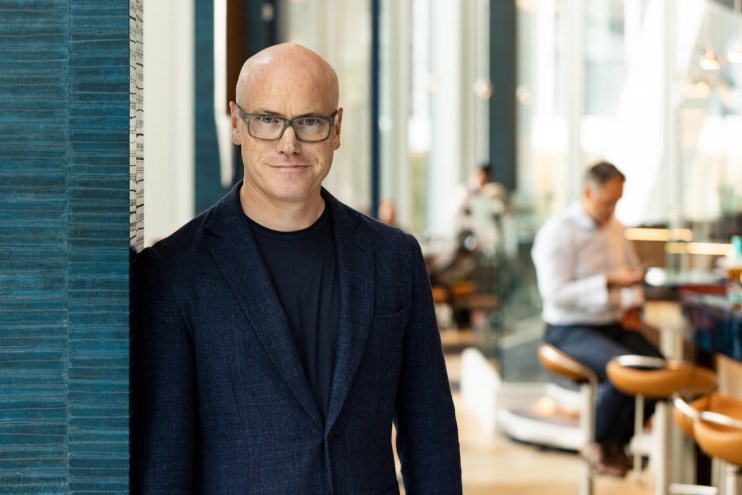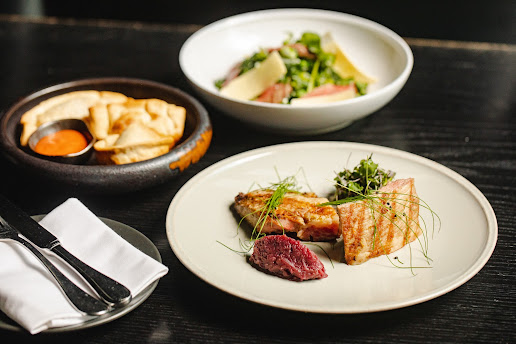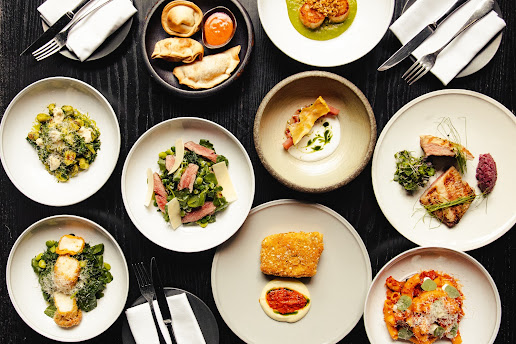How Gaucho’s boss has turned the once-troubled steakhouse into a success story

Martin Williams – the man behind M Restaurants – and his partners pulled Gaucho out of administration in 2018. Since then he’s turned the brand into one of the hospitality industry’s shining lights, with profits up and expansion continuing. We ask him how he’s done it.
ASK regular restaurant-goers what their biggest bug bear is at the moment and you’re unlikely to hear complaints about the overuse of celeriac or the exponential costs of going through a small plates menu. Chief amongst the complaint is the ‘get out’ time – an irritating, growing phenomenon which effectively involves dining against the clock, with the maitre d’ telling you when you need to leave almost before you’ve sat down.
Such will not a problem in Martin Williams’ restaurants. The Rare Restaurants boss – the man behind Gaucho and M Restaurants – has no time for them.
Get-out times are, he reckons, “fundamentally wrong.”
“It’s the opposite of hospitality,” he tells me over lunch at M on Threadneedle Street. “I hate them. They’re greedy, and if you’ve been told three times before you’ve sat down that the restaurant needs the table back, how’s that for a welcome?”
A TURNAROUND SUCCESS
Hospitality is one thing Williams, evidently, knows. A former actor, he became managing director of Gaucho restaurants for a decade before branching out on his own, with M Restaurants. In 2018, with the Argentinian steakhouse brand facing administration, he bought back in alongside his partners. It and (judging from the Wednesday lunchtime crowd around us) the rest of the group is now thriving.
“The key thing with Gaucho was that it was always profitable. But businesses were seeing growth in casual dining so they tried to create secondary brands – with Guacho it was Cau, with (rival) Hawksmoor it was Foxlow. In all cases, it hasn’t worked,” he said.
The problem was – per Williams – the management. “The team were really good at premium dining; they weren’t good at casual dining. You need a lot of people through the door at low margins,” he says.
“I’m not good at that either. It’s not what makes me as a restaurateur passionate. Gaucho had been neglected – been through too many private equity deals – and had lost its imagination, and had poorer quality service. And I recognised that.”
What he did then was relatively revolutionary for a steak house chain that to that point had revelled in its meat credentials – modernising the “brand away from steak,” as he puts it – whilst tucking into a black cod fillet cooked and served in a banana leaf, as if to prove the point (your correspondent had a superb iberico pork dish, though Williams assures me his carbon-neutral steak remains the best in London).
“We had to redesign the menu, reimagine the decor, revitalise the brand, and bring in high quality people. The majority of those came from M – they’d all been part of that journey.”
The point, Williams says, is to remove the “intimidation” factor of steak restaurants. He is inspired by Argentina – he admits to being torn watching the World Cup final in December, despite a French sweepstake entry – and more than that, modern Argentina.
“A gaucho isn’t any longer a rugged man on a horse whose lived on the farm his entire life,” he says. His last visit saw him encounter a female architect who worked four days a week in the city and managed her farm on the weekend from a polished concrete, modern house.
“That’s Argentina now.” The new Gaucho outpost in Liverpool is a testament to that.
“The changes we made have made it attractive cross-gender, cross-generation,” says Williams, and a recent City A.M. visit during the restaurant’s soft launch saw a young, predominantly female crowd in a well-lit, stunningly appointed former banking hall, that is as far away from the stereotype of medium-rare-and-a-malbec middle-aged men as could be imagined. It’s part of a “move away from monochrome and mirrors – we wanted to make it bright and colourful.”
“If you go into our competitors now, they haven’t evolved. They’ve become quite stuffy, intimidating dining rooms.” He declines to name names.



TOUGH CLIMATE
But for all Williams’ success – turnover is up some £18m on five years ago, with EBITDA last year above £10m – he stills sees plenty of stormclouds on the industry’s horizon.
“I couldn’t recommend it,” he says, when I ask him if he’d tell a young entrepreneur to start a business in the hospitality industry. The headwinds are much discussed – energy costs, recessionary pressures, business rates, the knock-on effect of pandemic-era restrictions and perhaps most frustrating of all, ongoing rail strikes.
Williams says there is a risk of the industry becoming seen as a “whinging” one but it would be remiss not to point out that the busiest week of the hospitality industry’s year, in the run-up to Christmas, was wiped out by industrial action. He doesn’t assign blame, but his frustration is obvious.
“I hope the government and the unions are aware of the impact of their striking – and that that’s not disassociated with restaurants closing, people losing their jobs, entrepreneurs losing their homes and the mental health impact that comes with that.”
He’d like to see a rebuilt business rates system – “it’s more suited to the 1970s and 1980s than it is now” – and thinks the changes to energy support for businesses could be catastrophic. But as an entrepreneur, he’s insistent on not dwelling on the difficulties.
FUTURE-PROOFED?
Rare appointed Clearwater International in December of last year to look at funding options – which could include current investors exiting.
“They’re financial institutions. They’d naturally like to see a return having been in the business since 2018,” he says.
“But any investors or equity holders in the business would be excited by our growth plans – we’re opening three new restaurants this year, and continue to have steady growth.”
“We’re self-funded, our new restaurants have been paid for by growth, and we’ve not needed to re-finance. We’re excited about our profitability over the last year.”
Williams has a glint in his eye as he discusses what might be next – which includes a new restaurant in Covent Garden, opening in June, which he says will take inspiration from the dramatic tango halls of Buenos Aires.
With business concluded, a good City lunch can resume – with no chance of being booted out. Now that’s hospitality.